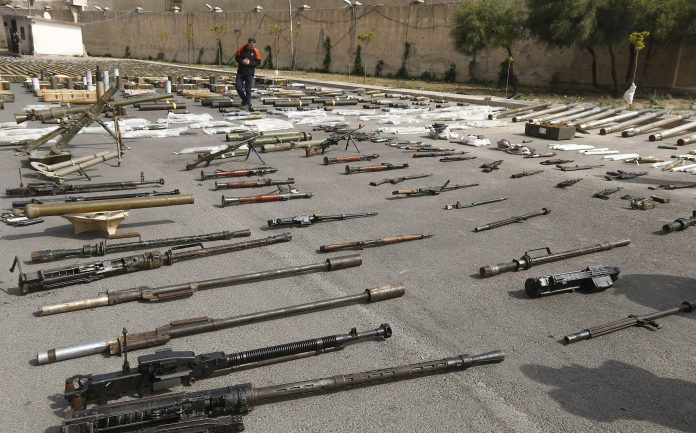According to the latest report by the Stockholm International Peace Research Institute (SIPRI), arms sales by the top 100 weapons companies dropped in 2022, Deutsche Welle reported.
Sales have flourished over the years thanks to a number of hot spots around the world, but this trend has come to a halt in 2022. According to SIPRI, the top 100 companies in arms and military services earned a total of nearly $600 billion (€550 billion), down 3.5 per cent from 2021.
Despite the volume of new orders, which reached record levels for many companies, revenues fell, especially in the USA.
Many US and European defence companies failed to increase their production capacity due to labour shortages, rising costs, the impact of the coronavirus pandemic and supply chain disruptions exacerbated by the war in Ukraine.
Revenues for the 42 US defence companies on the list fell significantly by 7.9% to $302bn, accounting for 51% of total arms income among the top 100 companies. Nevertheless, SIPRI suggests that long-term orders will have a positive impact on balance sheets next year.
Arms sales of the 26 European companies in the top 100 grew 0.9% to $121bn in 2022. The war in Ukraine has created demand for materials “suitable for a war of attrition, such as ammunition and armoured vehicles.”
Many European producers of these goods have been able to increase their revenues, such as the Polish arms company PGZ, which boosted its revenues by 14% and thus “benefited from the military modernisation programme that the country is pursuing.”
The top 100 list includes four German defence companies: Rheinmetall (28th), ThyssenKrupp (62nd), Hensoldt (69th) and Diehl (93rd). ThyssenKrupp was the only German company whose sales fell 16% to $1.9bn as a result of delivering fewer ships than the previous year.
Due to the lack of data, SIPRI was unable to comprehensively assess the revenue dynamics of Russian companies, so the list included only two: Rostec (10th place) and the United Shipbuilding Corporation (36th). Their joint turnover dropped by 12% to $20.8bn.
Meanwhile, companies in Asia, Oceania and the Middle East recorded significant profit surge. In addition, some companies in China, India and Turkey are supported by their governments as part of long-term modernisation plans.
“Companies there often have to contend with very difficult security conditions and are confronted with a kind of permanent state of war, like Israel or South Korea (…) Many suppliers there come from the domestic market. Most of the demand is also domestic to supply their own military. This helps these countries to mitigate the impact of global supply chain disruptions.”
Defence sales of the 22 companies from Asia and Oceania included in the list rose 3.1% to $134bn, marking the second year in a row when revenues in these regions exceeded those in Europe.
Eight Chinese companies made the list, with three of them in the top ten. All eight companies’ arms revenues totalled $108 billion, accounting for 18% of total global arms sales. This makes them the second largest share of total sales per country after their US counterparts.
The Middle East recorded the highest percentage sales growth of any region in 2022. Revenues for the seven companies operating there rose to $17.9bn, an increase of 11%.
According to SIPRI, some companies are able to “increase production more quickly in response to rising demand” as they specialise in less technologically complex products. For instance, four Turkish companies had combined revenues of $5.5bn, up 22% from 2021.
Drone manufacturer Baykar broke into the top 100 (ranked 76th) after its sales grew by 94 per cent, which was the fastest rise of any company in the list.
